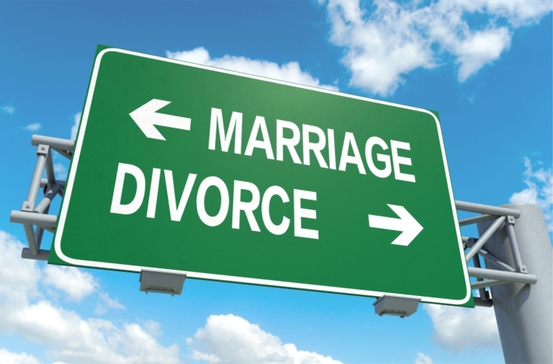10 Signs it Might Be Time to Divorce
Knowing when to divorce can be difficult, and it’s a decision that shouldn’t be taken lightly. So how do you know if you should proceed? How can you be sure that this time is really it? That this time there’s no turning back?
While there’s no magic answer for when to get a divorce, here are 10 signs it might be time to take that next step:
1.) You’re convinced that you’d be better off alone.
It’s perfectly normal as we grow older to pine for the careless days of youth gone by. When we were living in that 4th floor walkup in Chicago, eating Ramen noodles by ourselves without a care in the world.
But if you’re married and are convinced that being on your own again would be better than staying in an unhappy marriage, it might be time to get a divorce.
2.) Your needs are no longer being met.
Marriage is a partnership, and each spouse should be doing their part to fulfill the needs of the other — physically, emotionally and spiritually. When this is no longer happening or it’s become one-sided, it might be time to call it quits.
3.) You’re only staying together for the kids.
“Divorce isn’t such a tragedy. A tragedy’s staying in an unhappy marriage
and teaching your children the wrong things about love.” – Jennifer Weiner
Children are very smart. They know more than you think they do, and they can sense animosity a mile away. More importantly, children grow up to emulate the relationships they saw when they were younger. Do you really want them to grow up thinking the type of relationship you currently have with your spouse is normal or healthy?
If you don’t, it may be time to end the marriage.
4.) You’ve tried counseling, but you still can’t seem to come together.
Often the realization of when to divorce comes after admitting that sometimes things just don’t work out no matter how hard you try. Counseling requires a commitment by both spouses to work on, improve and (gasp!) change their behaviors for the greater good of the marriage.
If you are working to get the marriage back on track, but your spouse isn’t, then it might be time to move on without them.
5.) You’re being abused.
Whether it’s emotional or physical, abuse is something no one should have to put up with.
If you believe you are a victim of abuse, you may consider calling the National Domestic Violence Hotline at 1-800-799-SAFE (7233).
6.) You think of your marriage as “the lesser of two evils.”
If you’re only staying with your husband or wife because you think it’s easier than having to start over and find someone new, chances are your relationship is in serious trouble.
7.) You no longer trust or respect your spouse.
A strong marriage is based on trust, understanding and mutual respect.
If you’ve lost all respect or no longer trust your spouse, it may be a sign that it’s time to move on.
8.) You think it’s “cheaper to keep her (or him)”
There’s no doubt that two households are more expensive to run than one. And divorce only creates expense, not income.
But if the only reason you’re still together is financial, it may be time to draw up a budget, get your finances in order and make it on your own.
9.) You’re worried about what your friends or family will think.
For some, divorce can be an embarrassment or a failure. But if you believe nothing can be done to save your marriage and the only thing preventing you from moving forward with a divorce is worrying about what your friends or family will think, it might be time to follow your own intuition.
You deserve to be happy. And if the people you’re worried about truly care for you as they should, they’ll support your decision, regardless of their own personal opinions on divorce.
10.) You’re being unfaithful to your spouse.
Many people think of an affair as a physical relationship. But you’re kidding yourself if you think emotionally charged Facebook chats or texting exchanges with ex-boyfriends or girlfriends are harmless. You’ve just exchanged one kind of an affair for another.
If you’re cheating on your spouse physically or emotionally, it might be time to give your spouse the respect they deserve and get a divorce so you both can find happiness.
At the end of the day, only you can determine if you should get a divorce. It’s a personal decision that should be made with careful thought and consideration.
But if one or more of the items on this list is true for you, and you think it’s time to take the next step, you owe it to yourself to learn the best way to tell your spouse you want a divorce so you can keep things as peaceful as possible and do what’s best for you, your spouse and your children.
Joe and Cheryl Dillon are co-founders of Equitable Mediation Services, a divorce mediation firm that specializes in helping couples divorce peacefully, cost-effectively and fairly – without lawyers.
